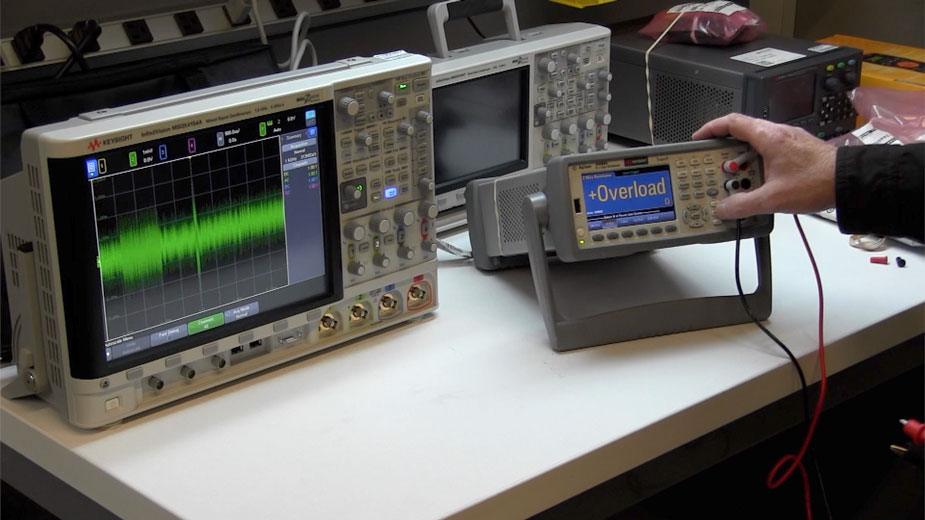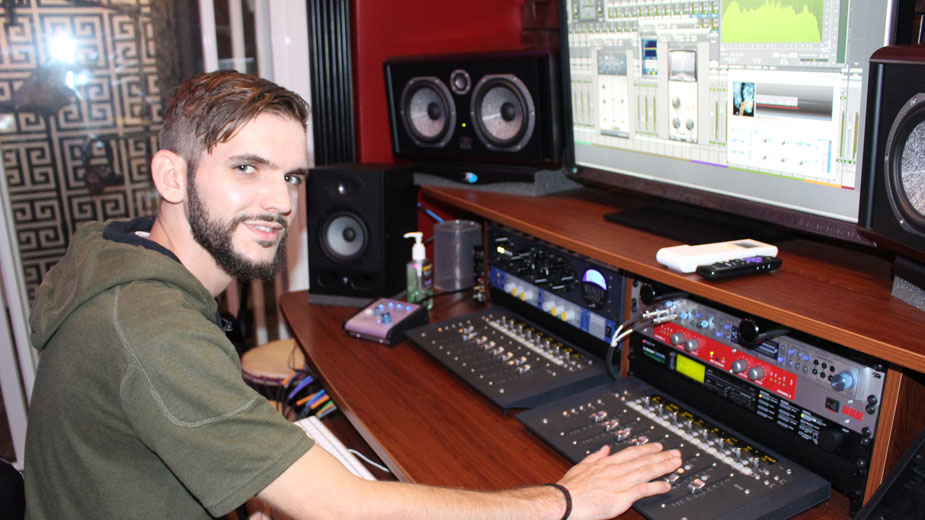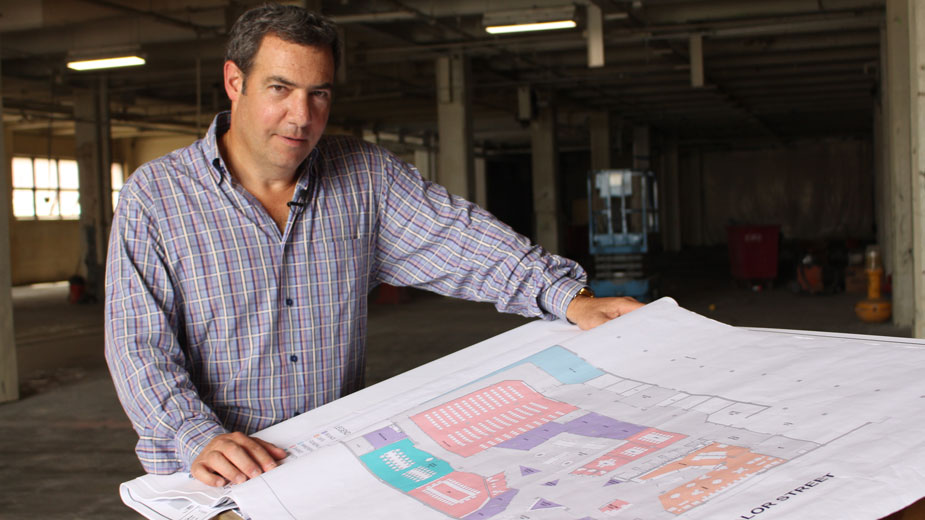YBI Inspire Lab Nurtures Innovations
Quentin Fisher wanted to find a way to combine his 20 years of experience as a consultant with the power of analytics to develop a cloud-computing product that could improve the bottom lines of medium and small businesses.
At first he thought the manufacturing market held the most promise. After he talked with team members at the Youngstown Business Incubator, they brought to his attention that the health-care industry would be an even better place to start.
“I’ve got more than 20 years experience in consulting, but have also been doing a lot of work in advanced analytics for large-scale enterprise systems,” says Fisher, CEO and founder of Health Care Analytics. Because the software development industry increasingly relies on cloud-based systems, Fisher saw an opportunity to take his idea to markets that found it beyond their budgets to use them.
Fisher represents the new face of emerging entrepreneurs in the region – innovators with ideas who are working downtown at the incubator’s Inspire Lab to advance their concepts.
“With the movement to the cloud, I realized that the work I had been doing for Fortune 500 and international firms is accessible to anyone,” he says. “The premise of the company was to package the advanced capabilities of software and consulting in a way so these small companies can use it.”
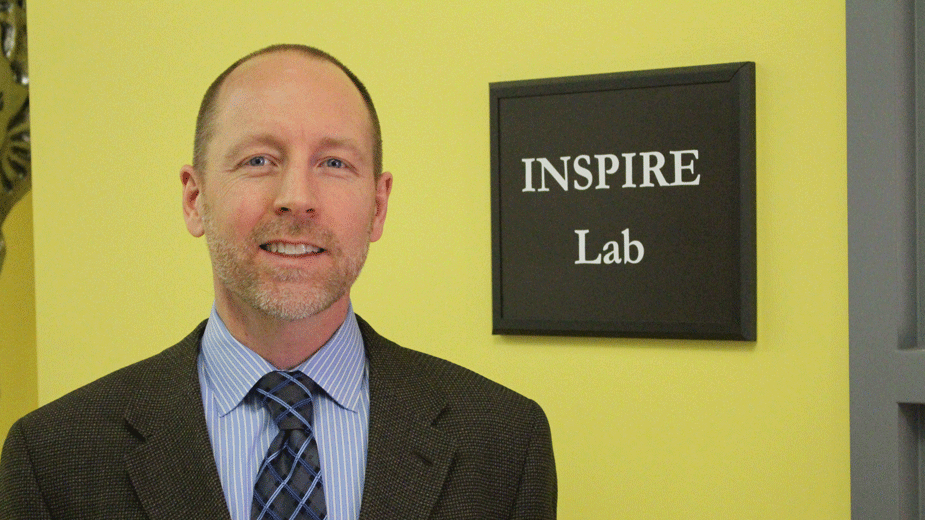 Quentin Fisher is the founder of Health Care Analytics.
Quentin Fisher is the founder of Health Care Analytics.
Cloud-based platforms refer to a system where data or programs are stored via remote servers and accessed through the internet instead of a local network or on a computer hard drive. Therefore, clients can access the system or program through any of several devices – phone, tablet or laptop, for example – that can establish an internet connection.
Fisher, who lives in Chardon, travels to Youngstown at least once a week to meet with tech experts and use the resources available at YBI. He and others share space at the Inspire Lab – offices set aside to provide support for early-stage entrepreneurs.
Health Care Analytics has developed a cloud-based software package that can accurately predict the likelihood of whether a patient will show up for a scheduled appointment, Fisher says. By using pure data – excluding names and other personal information – the company’s program determines with reasonable certainty whether an individual will show up, ignore the appointment or cancel at the last minute.
“About 30% of patients on average either don’t show up or cancel,” Fisher says. “That has a huge impact on a company’s bottom line since outpatient facilities are staffed to take on these appointments.”
The early results at Health Care Analytics point to a very effective tool that could well lead to improving the quality of health care, Fisher asserts. “Any outpatient facility can use these insights to drive better care, better treatment plans, profitability and efficiency,” he says.
The company has found success with substance-treatment clinics, Fisher says, but hints that the product could be used by other types of companies, such as mid-size manufacturers.
“We’re allowing these companies access to tackling problems they couldn’t get to before,” he says.
As of now, Fisher is the company’s sole employee. However, he’s working on a partnership with another party with longtime experience in the health-care field to launch the venture.
Inspire Lab is a nurturing spot where these new entrepreneurs can tweak ideas, access technical expertise and make use of traditional office support services. It was established in 2009 and is intended to serve startups that have not reached a point where they are capable of supporting an office or staff. The lab is equipped with a conference room where entrepreneurs can discuss new ideas and business strategies, and office space where startups can simply plug in their laptops or tablets and begin work.
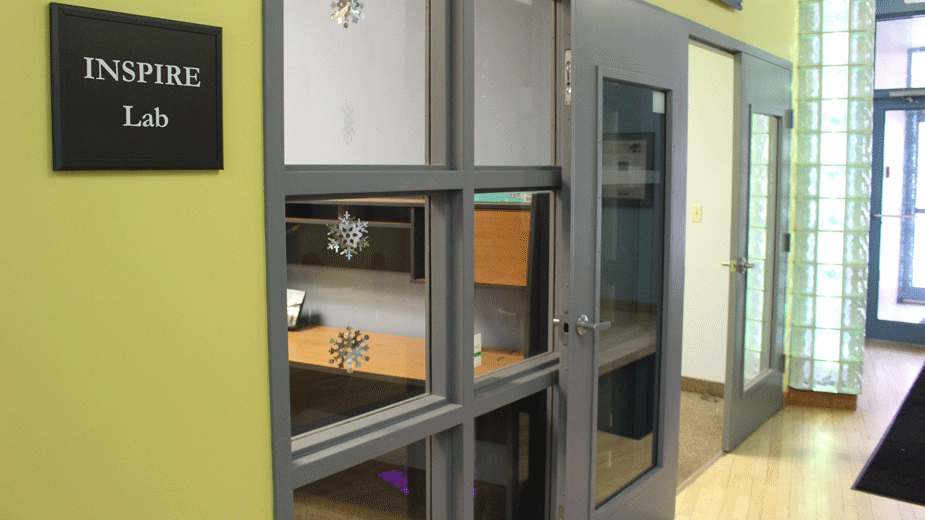 The YBI’s Inspire Lab serves early-stage entrepreneurs.
The YBI’s Inspire Lab serves early-stage entrepreneurs.
Inspire Lab companies are also able to access technical expertise from YBI staff, use the incubator’s network with other agencies, its digital library related to technology topics, and everyday business resources such as office supplies.
Corey Patrick, marketing and communications coordinator for the YBI, says that roughly five startups work out regularly at the Inspire Lab. These companies are YBI portfolio firms whose business plan has been vetted by the YBI’s business counselors.
Inspire Lab proved the perfect landing spot for Hudson Fasteners when in 2012 that company relocated its operations from New York to Youngstown, says its executive vice president, Cris Young.
“We were from out of town and knew nobody,” Young says, when she and her business partner, Lisa Kleinhandler, arrived in Youngstown. The lab helped the company network with the local business community and technology specialists within the incubator, she says.
Hudson Fasteners sought out the YBI because it wanted to convert its business from a traditional supplier of industrial fasteners to an ecommerce platform and grow from there. Within a year, the company established enough of a solid footing to occupy its own offices on the fifth floor of the YBI’s headquarters at 241 W. Federal St., Young says. Since then, the entrepreneurs have launched a new venture, Products Genius Technology LLC, and have secured a patent related to its ecommerce platform.
“We’re now more of a tech company than an industrial supplier,” Young says. “The YBI has helped make that transition as smooth as possible.”
Bernadette McElroy, owner of Destiny’s Touch Furniture Registry, sought out the incubator’s Inspire Lab to help launch a business built around a concept where groups of friends can jointly give gifts to couples getting married. “If you’re a small business, the YBI is the place to be,” she says. “The contacts, counseling and support are just phenomenal.”
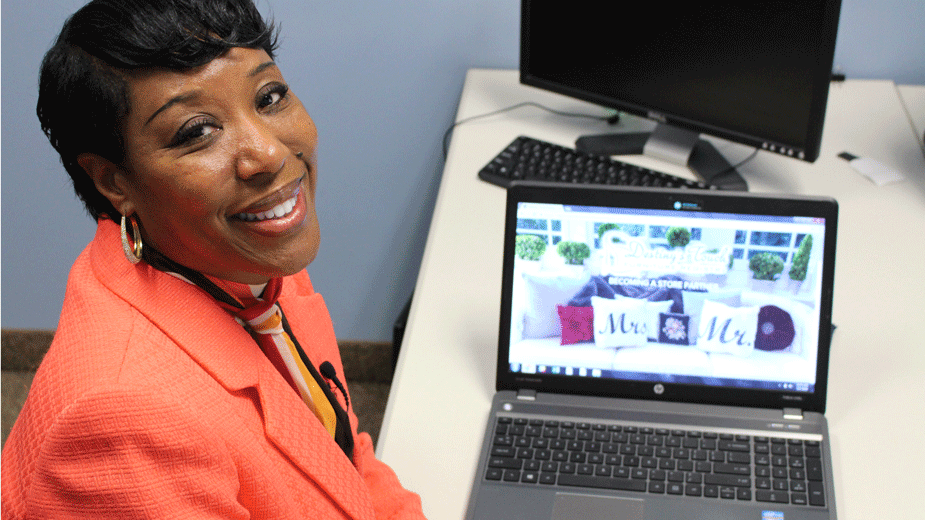 Bernadette McElroy’s idea focuses on wedding gifts.
Bernadette McElroy’s idea focuses on wedding gifts.
McElroy introduced her idea nearly 18 years ago, but suspended the business to devote more time to her family. Now that her children are grown, she felt it was time to revisit the concept and relaunch the enterprise.
“On average, brides receive about $5,000 in gifts,” McElroy says. Many are traditional items such as pillowcases, towels, cookware and a host of other smaller gifts. But a registry devoted to higher-end items where well-wishers could purchase certificates toward a new bedroom or living room set makes more sense for young couples starting out.
“If 40 guests each purchased a $50 certificate, then there would be $2,000 to buy new furniture,” she says. “They would then shop through one of our participating retail stores.”
McElroy is lining up retailers to enroll in her service and expects to fully roll out the business by early next year.
Although it’s still in the startup phase, Destiny’s Touch has established a high level of interest, she relates. “I went to a bridal show last weekend and pre-registered 407 brides-to-be,” she says. “It’s a strong number. And it shows that that brides do consider furniture as an option. It saves them money in the long run because they don’t have to finance furniture later.”
McElroy’s objective is to secure agreements with large furniture retailers so that she can take her business national. “That’s our plan,” she says.
Other entrepreneurs working in the Inspire Lab have embraced the shifting tides of media to deliver new products and services, especially those that highlight the Mahoning Valley.
That’s the thrust behind Pebble, an online media company its CEO, Bill Rusu, established in July. “Our goal is to create content that shines a light on business, art, and entertainment that is locally grown,” he says. His company uses documentary-style videos that center on specific aspects of life in the Mahoning Valley.
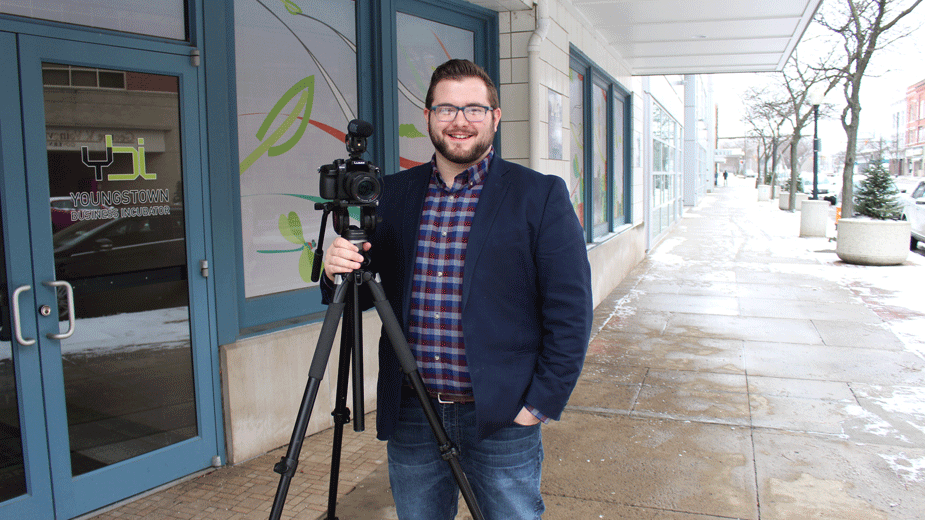 Bill Rusu founded his company last summer.
Bill Rusu founded his company last summer.
Unlike traditional media such as television, Pebble uses only a digital platform that employs social media such as Facebook to reach its audience – typically a younger segment of the population. “Our primary demographic is ages 18 to 24,” he says.
Rusu approaches his subjects through more of a filmmaker’s eye rather than a journalist’s, he says, as seen in Pebble’s “Shop Mahoning Valley” series, which spotlights local businesses, artists, retailers and restaurants. The segment, which airs weekly, reaches 150,000 people per month, he says.
“Ideally, when you watch an episode, you don’t feel like you’re watching a news story or an ad,” Rusu relates. “We’re an entertainment company that’s informative.”
The inspiration for Pebble came out of Rusu’s desire to call attention to the positive elements of the region. “There’s an awareness that needs to be built,” he says. What is especially interesting is telling stories of young people who chose to stay in the Mahoning Valley and make a difference, he adds.
Still, diving into a crowded media field presents its challenges for young entrepreneurs such as Rusu. “Building an audience is hugely difficult,” he says, “since there are others out there who have been doing this a long time.”
Furthermore, Rusu considers himself a filmmaker at heart and acknowledges he doesn’t have the knack for sales as do most entrepreneurs. “I came at this with the skills of creating video, to use social media, to build a web presence,” he says. “I want to grow and create more content.”
That would include eventually building a team of like-minded technical or sales personnel, preferably from the local market, Rusu adds. “I’d love to build a team of graduates from Youngstown State University, Kent State Trumbull or other area universities,” he says. “We want to explore what makes our community unique.”
— Reported by Dan O’Brien
Copyright 2024 The Business Journal, Youngstown, Ohio.
